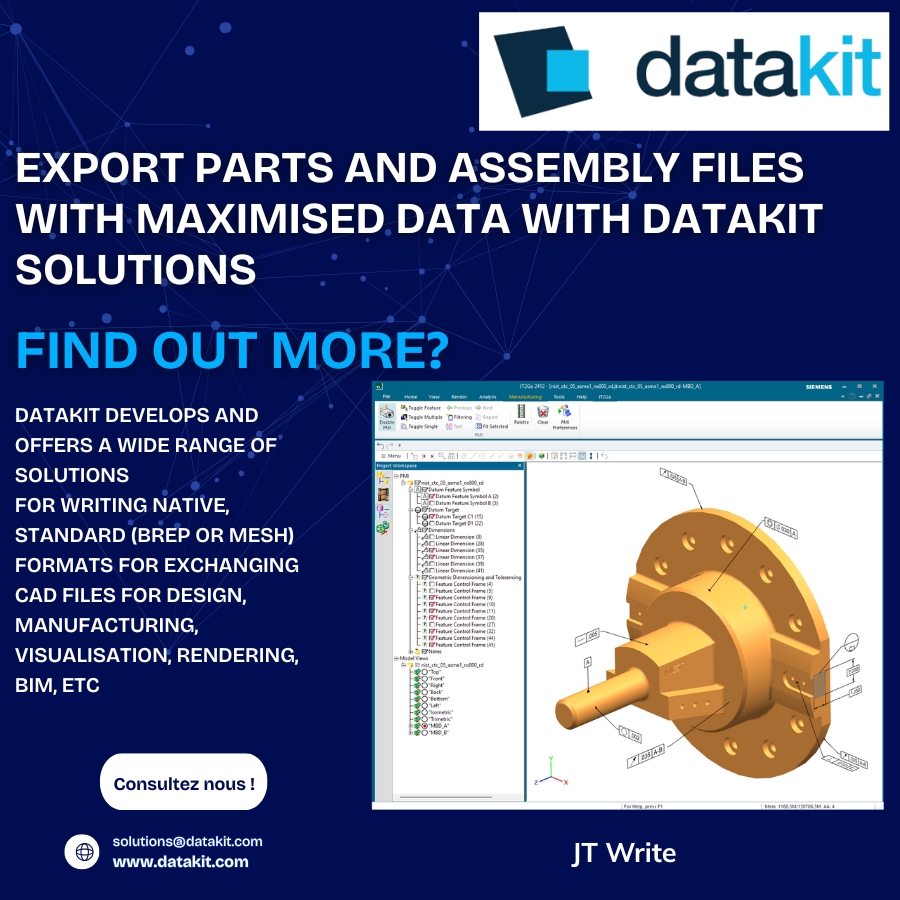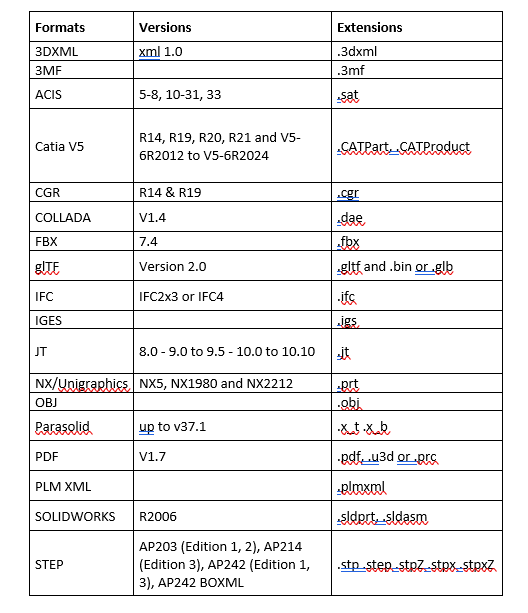- Join our Team
- Resources
-
Account
- Cart
- EN FR
Datakit write solutions

June 02, 25
Export parts and assembly files with maximised data with Datakit solutions
Datakit develops and offers a wide range of solutions for writing native, standard (BREP or mesh) formats for exchanging CAD files for design, manufacturing, visualisation, rendering, BIM, etc.
The structure of the assembly with the names of the different parts, multiple references, metadata (part attributes, user attributes) and/or meshes entities can be exported. With JT, STEP and PDF, users also have access to the PMI (dimensioning and tolerancing data) they need for inspection and machining.
The analytic nature of all primitive surfaces (planes, cylinders, cones, spheres, torus) and derived surfaces (offsets, revolution surfaces, ruled surfaces, swept surfaces) is preserved. This increases the precision and lightness of the viewing. And if part of the geometry needs to be changed, you can sketch and trim directly from the file.
Datakit's solutions are designed for enterprises (design offices, design, etc.) or software companies, who then embed them in their own applications.
These solutions enable different services to collaborate successfully with each other and with their partners, regardless of the hardware and software platform, in order to :
- share files and digital mock-ups during reviews with interdisciplinary teams,
- export a part of the files or assemblies to partners without transferring the complete assembly,
- mark up projects for adjustments and validate versions at very different stages, from sketch to prototype, ....
- access tolerancing data for measurement, quality control, manufacturing operations, etc.
- browse, view, verify or evaluate models, and simulate their manufacturing or implementation in a virtual environment,
- save files for archiving purposes …
Datakit's write libraries are embedded by software companies and machine manufacturers, mainly for native formats (Catia V5, CGR, NX, SOLIDWORKS, 3DXML). Then, come the standard formats (mostly JT, STEP and PDF) and, more recently, 3MF for additive manufacturing, COLLADA for web applications, FBX, OBJ, glTF, for realistic rendering or representation, and IFC for BIM.
Convertors for use in industry or embedded by software companies and machine manufacturers benefit from ongoing support from Datakit's R&D teams with quarterly releases (new version compatibility and/or additional entities).
To find out more: solutions@datakit.com
X